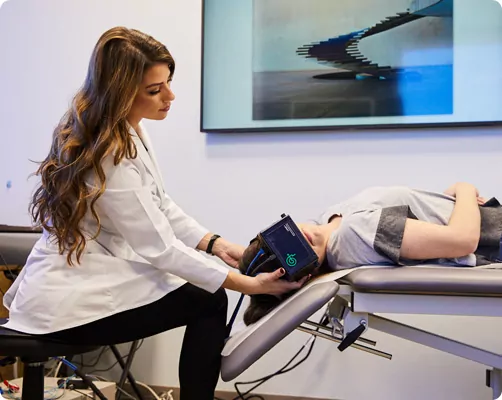How Vertigo Medication Can Increase Day-to-day Life
How Vertigo Medication Can Increase Day-to-day Life
Blog Article
Vertigo is a frequent condition that influences huge numbers of people worldwide. It is indicated with a feeling of dizziness, spinning, or feeling off-balance. While vertigo may be due to different factors, determining the main trigger is crucial in determining the most effective treatment plan. In this article, we shall examine why it is important to spot the causes of vertigo efficient treatment and how it may increase your overall quality of life.

Vertigo can be brought on by a few factors such as for instance inner ear issues, head incidents, migraines, and also particular medications. Without knowing the root cause of your vertigo indicators, it may be challenging to get a proper treatment which will provide long-term relief. As an example, if your vertigo is caused by an interior hearing problem but you are given treatment for migraines alternatively, you might not experience any improvement in your symptoms.
Distinguishing the explanation for vertigo takes a complete evaluation from the medical professional. This might contain bodily exams and diagnostic checks such as body perform and imaging runs to eliminate any underlying conditions or accidents that could be creating your symptoms. Once the cause has been established, a customized therapy plan can be made to deal with your particular needs.
One reasons why identifying the explanation for vertigo is important for effective treatment is really because different causes need different strategies in controlling symptoms. For instance, if your vertigo is due to an interior hearing problem called benign paroxysmal positional vertigo (BPPV), particular exercises known as canalith rethinking maneuvers may help minimize symptoms. Nevertheless, these workouts would not be helpful if your vertigo was due to something different like vestibular neuritis.
Furthermore, managing just the outward symptoms without handling their real cause may lead to short-term relief although not long-term improvement in overall health and well-being. For example, taking medication to alleviate vertigo indicators brought on by an internal hearing issue may provide temporary reduction, but it generally does not address the main issue. This can result in repeating symptoms of vertigo and a reduced quality of life.
Determining the explanation for vertigo is also vital in avoiding potential symptoms and managing any potential complications. Like, if your vertigo is caused by a head injury, pinpointing it in the beginning may prevent more injury and enable proper treatment to be administered promptly.

Realization: To conclude, determining the explanation for your vertigo is required for efficient therapy and overall well-being. It enables a individualized strategy that addresses the root cause rather than just treating symptoms. With correct examination and treatment, you are able to experience long-term respite from your indicators and enhance your standard of living significantly. If you should be experiencing repeated periods of vertigo and other connected signs, don't wait to get medical attention to determine the underlying trigger and obtain proper treatment.
________________________________________
How Vertigo Treatment May Increase Day-to-day Life
===============================================
Vertigo is really a common problem that affects millions of people worldwide. It's known by way of a sensation of dizziness, spinning, and loss of balance. While there are numerous triggers for vertigo, it can be debilitating and greatly affect one's quality of life. Fortuitously, there are medications available to greatly help reduce the outward symptoms and offer reduction for anyone experiencing vertigo. In that article, we will discuss the various kinds of vertigo medication aid and why they work.

The most typically given medication for vertigo is called Meclizine (Antivert). This medicine belongs to a class referred to as antihistamines which function by blocking histamine receptors in the mind accountable for causing dizziness and nausea. Meclizine has been discovered to be effective in lowering indicators such as for example dizziness, nausea, and vomiting associated with vertigo. It's generally taken 1-4 situations everyday with respect to the seriousness of symptoms.
A different type of medication used to take care of vertigo is called Benzodiazepines (Valium or Ativan). These drugs act on certain neurotransmitters in the brain that regulate stability and coordination. They have been found to work in reducing thoughts of dizziness and nervousness related to vertigo. But, these medications may cause drowsiness
as a complication therefore they should be combined with caution.
Sometimes where different drugs haven't presented reduction or if you can find underlying situations creating vertigo such as for instance Meniere's infection or vestibular migraines, health practitioners may possibly prescribe diuretics like hydrochlorothiazide (HCTZ) or acetazolamide (Diamox). These drugs function by reducing water buildup in the internal hearing which can contribute to periods of vertigo.
For people who experience serious bouts of vertigo that do not react well to other medications, medical practioners may prescribe steroids such as for instance prednisone. These medications work by lowering infection in the inner ear which can cause vertigo. However, they're usually given for short-term use because of possible area effects.
In addition to these medicines, health practitioners might also suggest vestibular rehabilitation treatment (VRT) for long-term rest from vertigo symptoms. VRT is a questionnaire of bodily therapy that targets workouts and practices to improve balance and reduce dizziness. It's been discovered to work in handling vertigo symptoms and increasing overall quality of life.

Realization: While there is no one-size-fits-all approach in regards to managing vertigo, drugs provides significant relief for anyone struggling with this condition. Meclizine, Benzodiazepines, diuretics, steroids, and VRT are typical frequently recommended choices that have been found to work in controlling vertigo symptoms. It is very important to consult with a physician prior to starting any medication program as they can establish the best span of therapy predicated on personal needs and medical history. Report this page